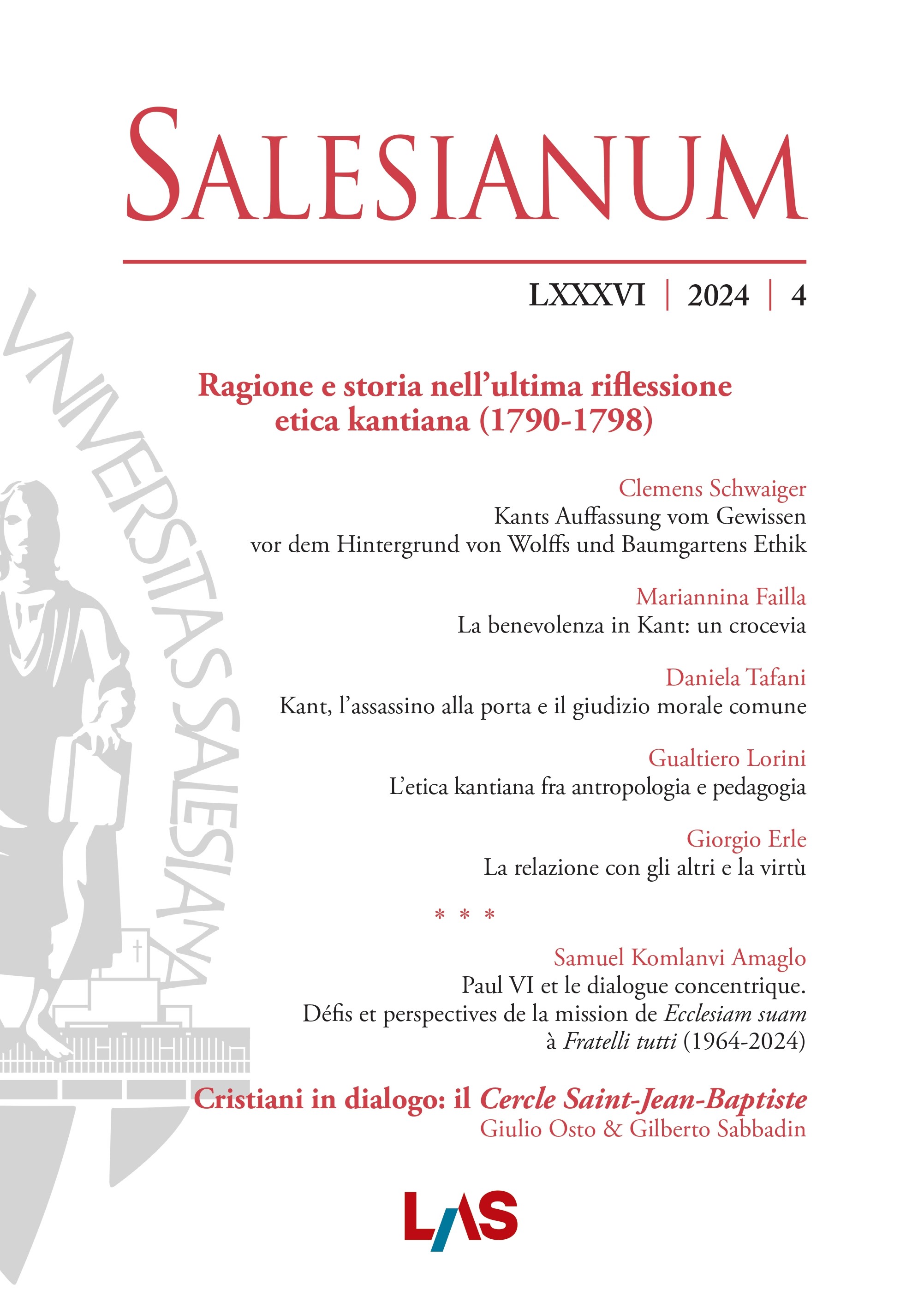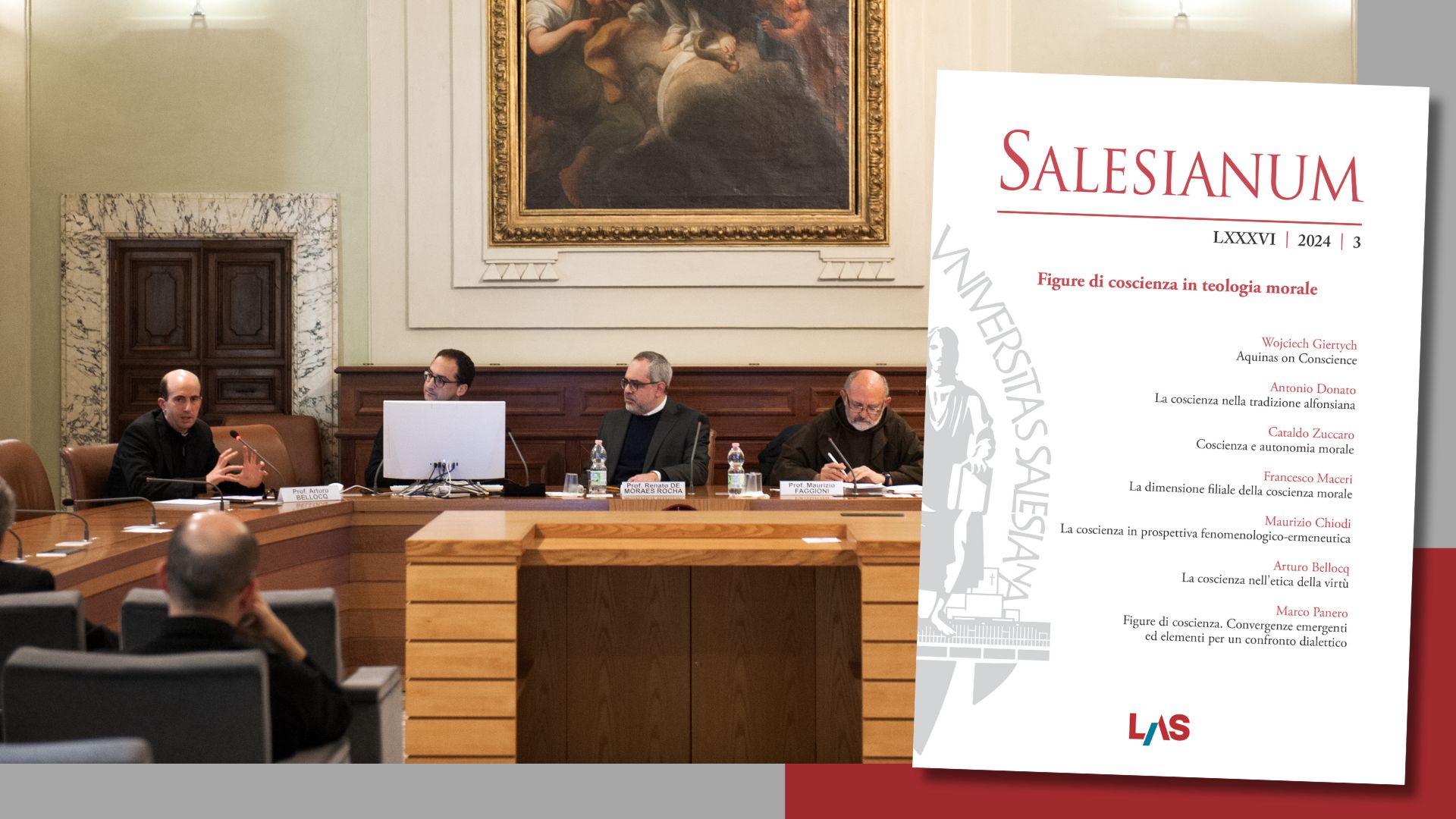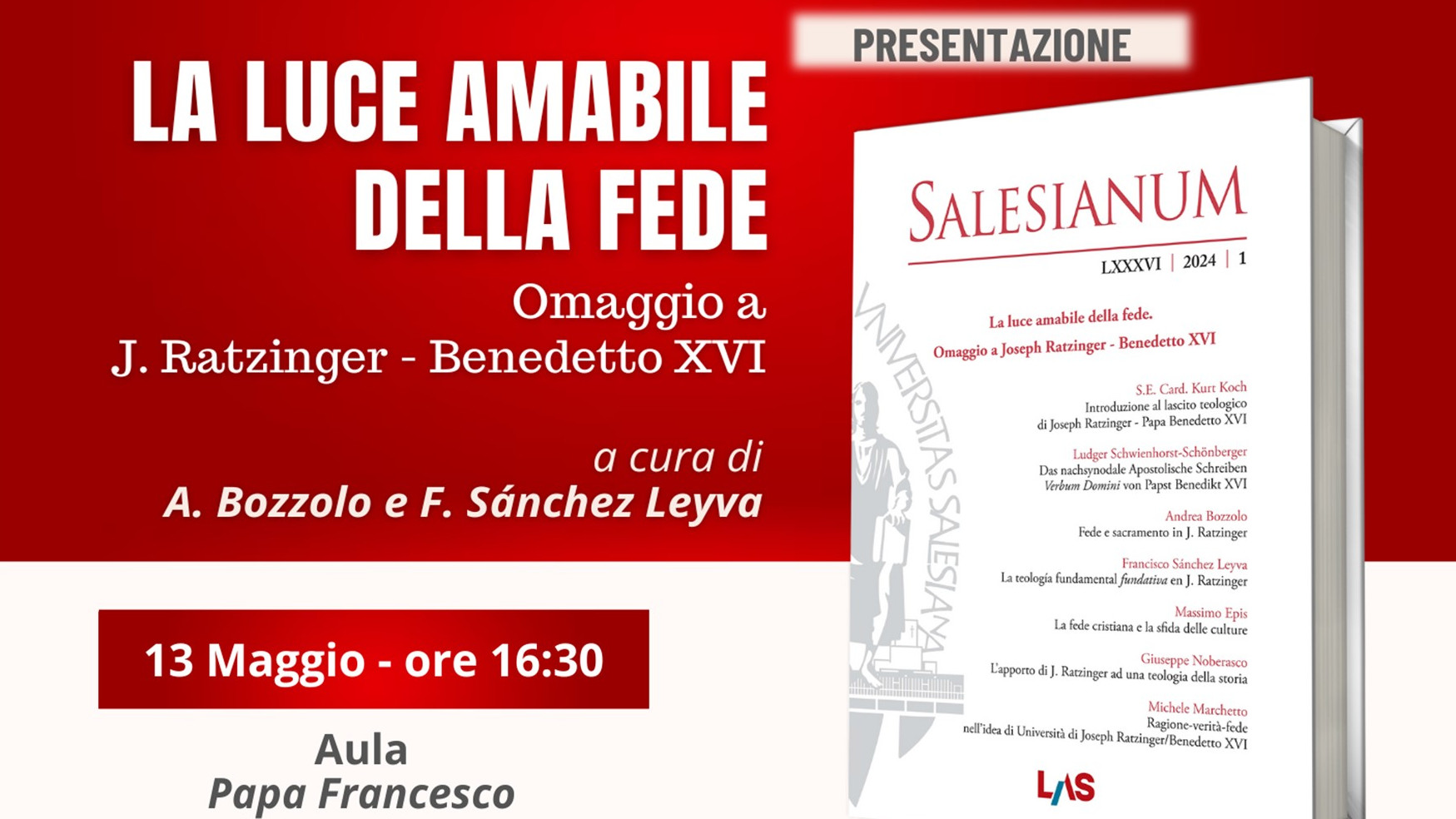Nessun amore senza vertigine. Ontologia del messianismo e verità dell’umano in E. Lévinas
No love without vertigo. Ontology of messianism and truth of the human in E. Lévinas
Salesianum vol. 85 (2023) n. 2, 276-298Sezione: Studia
Ricevuto: 03-05-2023 - Approvato: 05-05-2023
Sommario
L’amore, secondo Lèvinas, si accende in pienezza solo messianicamente, in una carne di scandalo, figura dell’alterità radicale, che media all’io una triplice verità di sé: quella del carattere liberante della soggezione a-sé e ad-altri, della giustizia dell’amore e della irriducibilità egologica del significato. L’amore, solo ad-venendo in tale radicalità, disambigua l’orizzonte storico, popolato di figure scomode dell’alterità – il povero, lo straniero, il derelitto – imponendo alla libertà l’esodo da-sé, per trovare in-altro la propria giustificazione e verità. Un esodo non solo esteriore, dall’egoismo all’ospitalità, ma interiore, di abbandono all’Altro in-concepibile, Traccia inerme dell’ultimo Riscatto, accessibile alla libertà nella fatica – sempre sanguinante – dell’Amore.
Parole chiave
Giustizia | Libertà | Sofferenza | Alterità | Messia
Abstract
Love, according to Lévinas, only comes into fullness messianically, in a flesh of scandal, a figure of radical otherness, which mediates to the self a threefold truth of itself: that of the liberating character of subjection to-self and to-others, of the justice of love and of the egological irreducibility of meaning. Love, only by ad-coming in such radicality, disambiguates the historical horizon, populated with uncomfortable figures of otherness – the poor, the stranger, the derelict –, imposing on freedom the exodus from self, to find its own justification and truth in others. An exodus not only exterior, from selfishness to hospitality, but also interior, of abandonment to the in-conceivable Other, but a defenceless Trace of the ultimate redemption, accessible to freedom in the fatigue – always bleeding – of love.
Keywords
Justice | Freedom | Suffering | Alterity | Messiah


